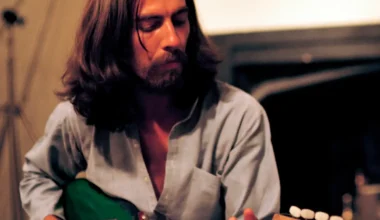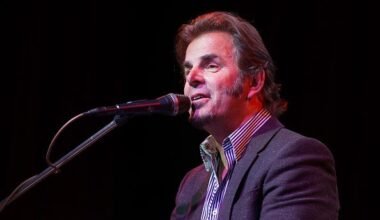Angus Young’s riffs are instantly recognizable—within a couple of notes, you know it’s him. It’s an accomplishment few musicians have achieved. While his guitar work may not always be the most intricate or varied, the sheer power of his riffs has made AC/DC a staple in rock music. The band’s timeless sound brings energy to a world that can often feel monotonous. Angus jokingly remarked, “I’m sick to death of people saying we’ve made 11 albums that sound exactly the same.” In fact, we’ve produced 12 albums that sound identical.”
Nonetheless, they all sound the same because they sound like AC/DC and nobody else. These albums were created to provide people with what they crave: boisterous, anthemic rock that is great for stadiums.
For Angus, this straightforward approach is what rock should be. “We’re a rock group. We’re noisy, rowdy, sensational and weird,” he said. His frustration grows when bands venture into weird territory without purpose or merely recycle the same old blues riffs. This, for him, is where Eric Clapton falls short. While Clapton is hailed as one of the greatest guitarists of all time, having been inducted into the Rock and Roll Hall of Fame three times, Angus has no time for the praise.
“Clapton just sticks licks together that he has taken from other people – like BB King and the other old blues players – and puts them together in some mish-mashed fashion,” Angus argues.
This criticism isn’t just about Clapton’s technical skills but about his lack of innovation. While Clapton may have popularized the blues for rock audiences, Angus contends that Clapton’s approach remains stagnant. “Does he really have the feel, soul and sincerity of Howlin’ Wolf?” Angus asks. “No,” he concludes.
Angus doesn’t just critique Clapton’s playing; he takes issue with his songwriting too. According to Young, Clapton’s most significant work was the Blues Breakers album with John Mayall, and maybe a handful of tracks with Cream. But beyond that, Angus believes Clapton’s reputation is largely built on repeating the same formula, lacking any major evolution.
He’s not alone in this assessment. Rik Emmett, guitarist for Triumph, echoed similar thoughts on Clapton’s style, calling his guitar playing “narrow” compared to his contemporaries. “He might’ve ended up being a better R&B singer,” Emmett said, referencing Clapton’s limits as a guitarist when compared to the broader palates of Jeff Beck and Jimmy Page, both of whom came out of the Yardbirds.
The contrast between Clapton’s style and Angus Young’s is telling. While Clapton may have remained comfortable in a limited range, Angus took his minimal tools and carved out something fresh, channeling the raw, immediate energy of rock and roll. Angus’s sound may be simple, but it’s still as electric as ever, while Clapton’s approach can feel repetitive, relying on old tricks.







